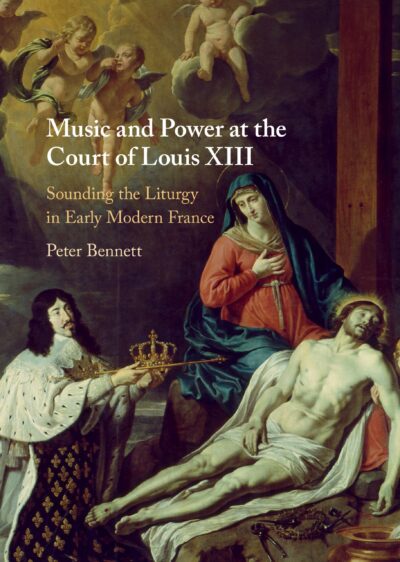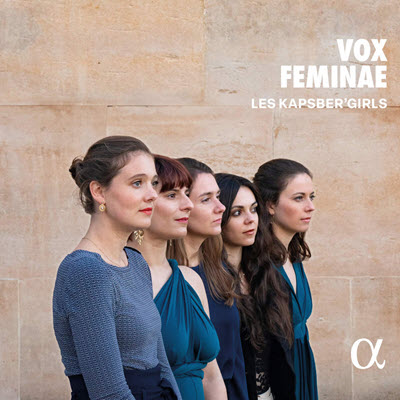by Catherine Gordon
Published September 12, 2022
Music and Power at the Court of Louis XIII: Sounding the Liturgy in Early Modern France by Peter Bennett. Cambridge University Press.
Peter Bennett’s book, the first thorough study of early 17th-century royal liturgies and their musical settings, is a brilliant examination about the role that liturgical music played in establishing Louis XIII’s legitimacy as king in France after the Council of Trent’s Counter-Reformation decrees. Bennett’s interpretations of text and music provide readers with a fascinating view into the challenges that Louis XIII (1601-1643) faced during a period of conflict within the Catholic Church and questions about his legitimacy as king by those who questioned the Bourbon ascent to the throne.

During the first decades of the 17th century, the monarchy and factions of the Catholic Church struggled for control over church and state. For a variety of reasons, which are explained throughout the book, it was the religious ceremonial music of this period that demonstrates the most important manifestations of the chosen ideology—the divine rights of kings—adopted by the Catholic Church and monarch.
A professor of musicology and head of historical performance practice at Case Western Reserve University, Bennett has written a skillfully researched monograph—a weighty read but interesting and invaluable throughout. He demonstrates how liturgical texts were selected and altered in musical compositions used in non-liturgical public ceremonies to communicate an ideology that established the divine authority of Louis XIII.
Bennett’s theoretical framework, used as a point of departure, is Max Weber’s seminal work on power as a social construct and how the powerful enforce their will on their subordinates through social interactions to establish legitimate rule. Three interlinking factors are necessary to render legitimacy to power: 1) the powerful needed to conform to established rules, 2) the rules are justified by reference to beliefs shared by leaders and their subordinates, and 3) there is evidence of consent. In interactions between the powerful and their subordinates, both had to be active participants, subscribing to an underlying system of beliefs for the ritual to have meaning and establish validity to the powerful. The liturgy of the Catholic Church served this purpose.
As Bennett explains, David—psalmist, musician, king, and agent of the Holy Spirit—was the most enduring model for divine kingship used in early 17th-century public ceremonies to establish the connection between Louis XIII and his role as God’s chosen king on earth. To celebrate the surrender of La Rochelle and the defeat of the Huguenots in 1628, for example, three masses were performed. Music was sung by different groups of priests and courtiers while processing to Saint-Marguerite Cathedral, and a Te Deum, led by Louis himself, was performed by the choir. Musical settings of verses from various psalms were combined to reflect Louis’s direct ties to David with references to God who not only fortified Louis XIII with the strength to subdue his enemies but also magnified the salvation of the king, descendant of David.

Other representations of an evolving concept of kingship in sacred texts and music were introduced later in Louis’ reign to further shape and establish his power. In addition to the sword of David, the sanctity of Louis IX, the warrior king and founder of the newly restored Bourbon dynasty, came to represent Louis XIII’s military exploits and absolute power under God. Additional views of kingship during the 1630s were based on more affective models, such as David the expressive poet. The previous attention on militaristic and masculine representations of King David gave way at the end of Louis XIII’s reign to an ideology of adoration for the Virgin Mary.
Bennett’s musical analysis is also a central focus of his book and brings to light a repertory of music unknown to most scholars and performers. Bennett explains that many components of the Mass were sung in fauxbourdon—a 15th-century technique of improvisational singing—while polyphonic works were reserved for the most important celebrations and performances of sacred music in non-liturgical settings. He also includes a fascinating account of how psalm settings of all kinds were altered to legitimize the king. Bennett, an expert liturgist, includes detailed comparisons between different verses taken from the one or more psalms combined with newly written lines of text to communicate the approved ideology of church and state: Louis XIII as God’s chosen ruler on earth.
Not only does Bennett’s book address a significant lacuna in our knowledge of religious music at this time, it also addresses ramifications for a better understanding of religious and ceremonial music used throughout the reign of his successor, Louis XIV. For example, Bennett concludes by proposing how the resurrection of ceremonial music under Louis XIII sheds light on the development of the grand motet under Louis XIV. Even though the use of sacred musical compositions as expressions of ideology continues, the message changed substantially: musical works composed under Louis XIII reign were created to serve God as part of a time-honored liturgy of the universal, while composers under Louis XIV were driven by musical, not liturgical, excellence. Whereas the identity of those who composed sacred music for Louis XIII were not publicly acknowledged, it being created for the glory of God and France, religious music under Louis XIV promoted individual creativity, focusing on the identity of composers, and was created for a small minority with no opportunity for the wider public to demonstrate their consent.
Bennett’s book, a trove of information, is beautifully written and meticulously researched. It fills a major gap in our knowledge of religious music at the court of Louis XIII, and presents the material within a theoretical framework and broader context that goes beyond a description of the music itself. Readers are provided with a view into one of the most tumultuous eras in French history and how music not only reflects the issues confronting those in power but also shows how musical compositions can be used to unite a people under an ideology that conforms to a belief system shared by the powerful and their subordinates. Bennett’s erudite study brings together an extensive knowledge of history, theology, philosophy, liturgy, the psalms, and music that has something to offer scholars from across a variety of disciplines.
Catherine Gordon, professor and chair of the Music Department at Providence College, has published articles and essays on various 17th-century French music topics, including the book Music and the Language of Love: Seventeenth-Century French Airs with Indiana University Press (2011). Her second book, Catholicism as Musical Discourse: The (Re)Conversion of Women Through Seventeenth-Century French Sacred Songs, is forthcoming through Oxford University Press.




